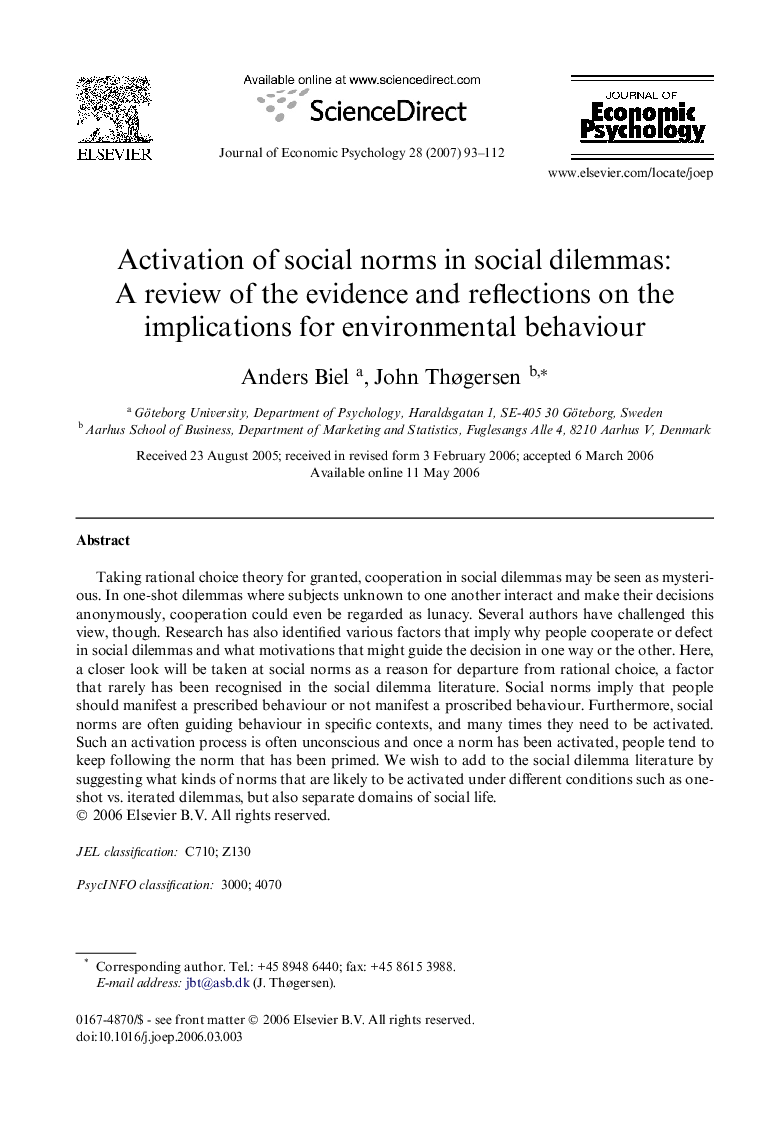| Article ID | Journal | Published Year | Pages | File Type |
|---|---|---|---|---|
| 885403 | Journal of Economic Psychology | 2007 | 20 Pages |
Taking rational choice theory for granted, cooperation in social dilemmas may be seen as mysterious. In one-shot dilemmas where subjects unknown to one another interact and make their decisions anonymously, cooperation could even be regarded as lunacy. Several authors have challenged this view, though. Research has also identified various factors that imply why people cooperate or defect in social dilemmas and what motivations that might guide the decision in one way or the other. Here, a closer look will be taken at social norms as a reason for departure from rational choice, a factor that rarely has been recognised in the social dilemma literature. Social norms imply that people should manifest a prescribed behaviour or not manifest a proscribed behaviour. Furthermore, social norms are often guiding behaviour in specific contexts, and many times they need to be activated. Such an activation process is often unconscious and once a norm has been activated, people tend to keep following the norm that has been primed. We wish to add to the social dilemma literature by suggesting what kinds of norms that are likely to be activated under different conditions such as one-shot vs. iterated dilemmas, but also separate domains of social life.
